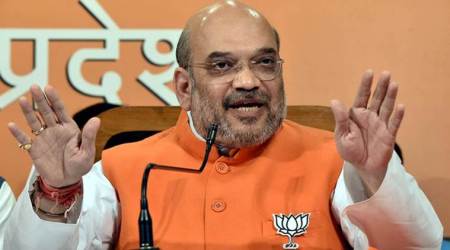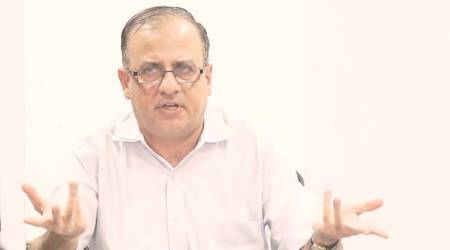 According to officials from the state school education department, they have received over 160 applications from civic schools and other government-run schools across Maharashtra interested in offering international curriculum. (Representational Image)
According to officials from the state school education department, they have received over 160 applications from civic schools and other government-run schools across Maharashtra interested in offering international curriculum. (Representational Image)
Amid reports of rising student dropouts and its schools closing down, the Brihanmumbai Municipal Corporation (BMC) is planning to offer international curriculum in 25 schools. According to officials from the state school education department, they have received over 160 applications from civic schools and other government-run schools across Maharashtra interested in offering international curriculum.
Currently, the department is in the process of shortlisting 100 schools. Of these, the majority (25) are run by the BMC. BMC officials believe the scheme could provide a new lease of life to the “dilapidated” municipal education system.
“A number of students are leaving BMC schools to join private English-medium schools. This scheme could attract such students back. Once implemented, this scheme will propel major changes in the education system. We have selected 25 schools that fit the criteria stipulated by the state school education department. I am visiting more schools to recommend them for this scheme,” said Mahesh Palkar, education officer, BMC. Read | These teachers brought a dying village school in Maharashtra back to life in one year, click here
The state school education department and the BMC’s education department are currently in the process of shortlisting schools and working out a model based on which institutes will be selected for providing international curriculum. A meeting on this issue was held on July 7. Students might have to undergo various exams to help them cope with the international curriculum. For instance, it is likely that students of Class IV will have to take the Progress in International Reading Literacy Study (PIRLS), an exam generally held every four years.
Similarly, students of Class IV and Class VIII will have to appear for Trends in International Mathematics and Science Study (TIMSS). Meanwhile, students who complete 15 years of age or are around Class X, will be expected to appear for the Programme for International Student Assessment (PISA) level of examinations, which are conducted every three years. However, this model is still under consideration.
Under the plan, these schools will still function without charging any fees from students and will also continue to provide 27 free items (including bags and books) to students at the start of the academic year. The only change the selected schools will undergo would be the curriculum and availability of trained teachers. “These schools will continue to get the benefits they have now. Nothing would change except for the standard of education, which would be elevated by this scheme,” added Palkar.
The state education department is looking at setting up a separate international board under the purview of the State Council of Educational Research and Training (SCERT). Nand Kumar, Principal Secretary of Maharashtra School Education and Sports Department, said: “Currently, we are in the process of hiring a consultant, probably from the Cambridge board, who will set the curriculum and also design teacher training courses.”
The criteria stipulate that the school be large with more than 500 students, have an active principal who can be adaptive to learning and introducing new changes and be capable of contributing resources even beyond the scope of the state government. “The headmaster, the local body and the local school management will be considered for the selection,” said Kumar.
“The principal/headmaster will be the crucial factor in the process as he or she will spearhead the scheme. Our only concern is that they should not shirk responsibility post-training. Teachers at these international schools will be retained for only five years. They would have to undergo a re-selection process every five years till they retire. This is meant to keep them updated and motivated,” he added.

